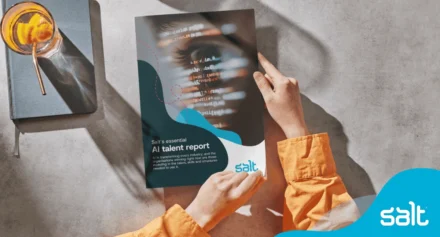Applications are now closed.
Software Engineering Manager
Ref: JO-2511-357384
- Netherlands, Amsterdam
- DevOps & Automation, Technology
- IT
- 1,000 - 4,999 Employee
- €120.00 - €130.00 per hour
- Environment: Hybrid
- Contract Type: Contract
- Starts: 2025-12-01
Salt is currently hiring a Software Engineering Manager for a client of ours in Amsterdam.
You would need to be able to visit the Amsterdam office twice a week. You would also require a kvk/zzp.
Overview
The Senior Engineering Manager is responsible for leading and developing a group of Engineering Managers and their respective teams. This role oversees all aspects of engineering within their scope, ensuring technical excellence, operational effectiveness, and alignment with the organization’s strategic goals. The Senior Engineering Manager will drive the introduction, design, and continuous improvement of products and processes that support the company’s objectives while ensuring optimal use of available resources.
In partnership with Engineering Directors, this role is accountable for team performance, budget management, talent development, and capacity planning to ensure organizational success.
Key Responsibilities
People Management
-
Inspire, mentor, and develop team members by supporting the creation of personal development plans, leveraging learning resources, and offering growth opportunities.
-
Address underperformance through clear goal setting, performance reviews, timely feedback, and collaboration with HR partners.
-
Support and guide more junior managers in people development and performance management best practices.
Team Management
-
Drive execution and accountability by fostering collaboration across business, technical, and stakeholder groups.
-
Ensure successful delivery through regular tracking of health metrics, KPIs, and roadmap progress, proactively identifying and resolving blockers.
-
Manage stakeholder expectations by communicating progress and challenges clearly and on time.
-
Lead workforce planning and recruitment efforts, ensuring the right resources are in place to meet organizational needs.
Coaching & Mentoring
-
Provide coaching and guidance to peers and stakeholders across all levels, sharing experience, knowledge, and best practices to elevate overall team performance.
End-to-End System Ownership
-
Take full ownership of services by monitoring application health and performance, defining and tracking relevant metrics, and addressing issues proactively.
-
Reduce business continuity risks through robust documentation, operational readiness, and the use of best-in-class tools and practices.
-
Implement continuous delivery and experimentation frameworks to enhance quality and gather customer feedback.
-
Manage deployments and operations in production environments independently and effectively.
Technical Incident Management
-
Resolve live production issues within SLA, minimizing customer impact.
-
Conduct root cause analysis to develop long-term, reliable solutions.
-
Contribute to postmortems and incident tracking to ensure learning and continuous improvement.
Software Development
-
Build software applications using appropriate technologies, tools, and development practices.
-
Write clean, maintainable, and reusable code following standard design patterns and libraries.
-
Apply rigorous testing techniques to ensure high quality and reliability.
-
Uphold data security, integrity, and quality by adhering to organizational standards and best practices.
-
Lead efforts to improve data culture and management across teams.
Architectural Guidance
-
Advise product teams on technical solutions that meet functional, non-functional, and architectural requirements.
-
Provide context and alignment within the broader architectural landscape.
-
Define and communicate a clear technical direction, ensuring architectural decisions support business and system scalability.
Critical Thinking
-
Identify patterns, root causes, and opportunities for improvement in complex situations through structured, analytical thinking.
-
Evaluate and refine ideas and solutions using objective analysis and SMART improvements.
Continuous Improvement
-
Identify and deliver process, system, and structural enhancements to improve performance and efficiency.
-
Design and implement new standards, workflows, and best practices that drive business outcomes.
Effective Communication
-
Communicate information clearly and appropriately for different audiences and contexts.
-
Foster understanding and collaboration through active listening, adaptability, and clear articulation of ideas.
-
Encourage open dialogue by asking insightful questions and promoting shared understanding.
*Rates depend on experience and client requirements









